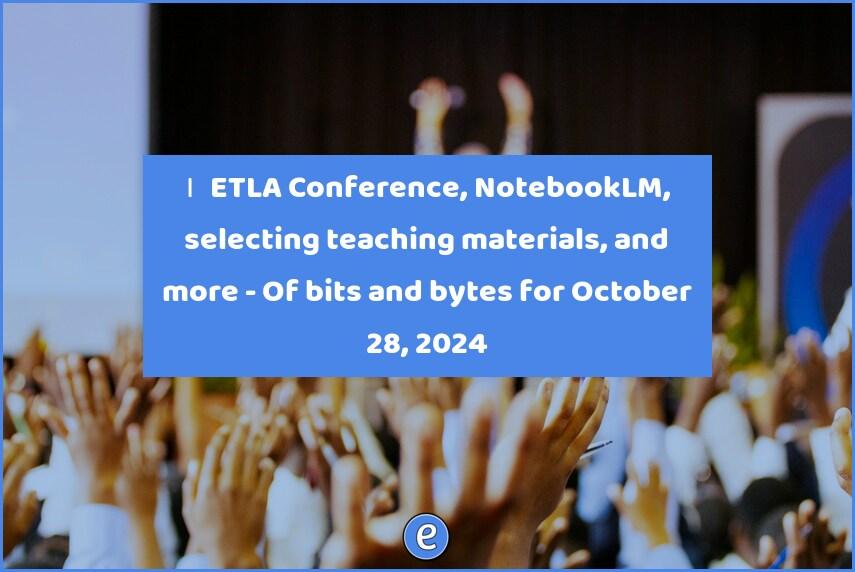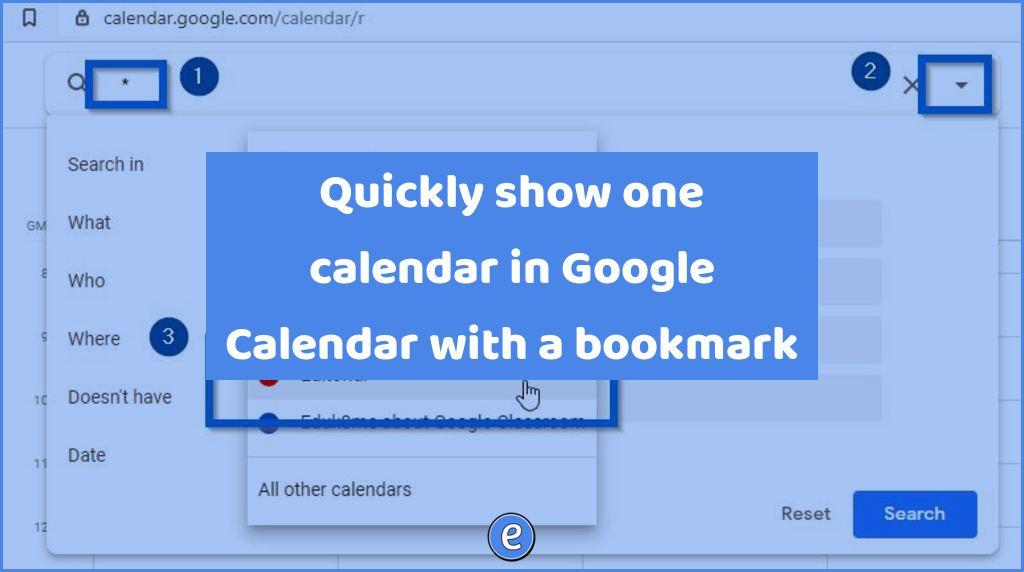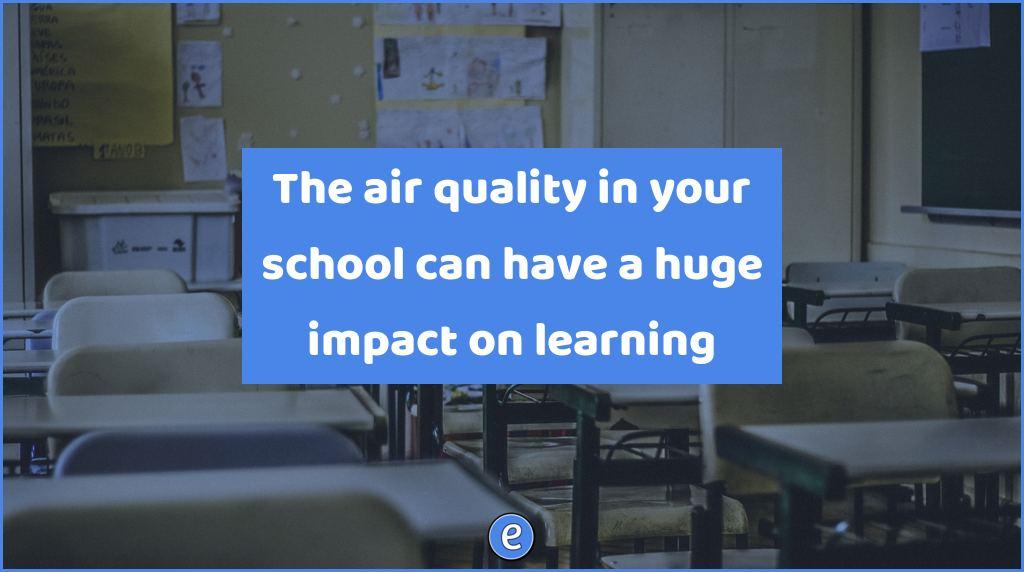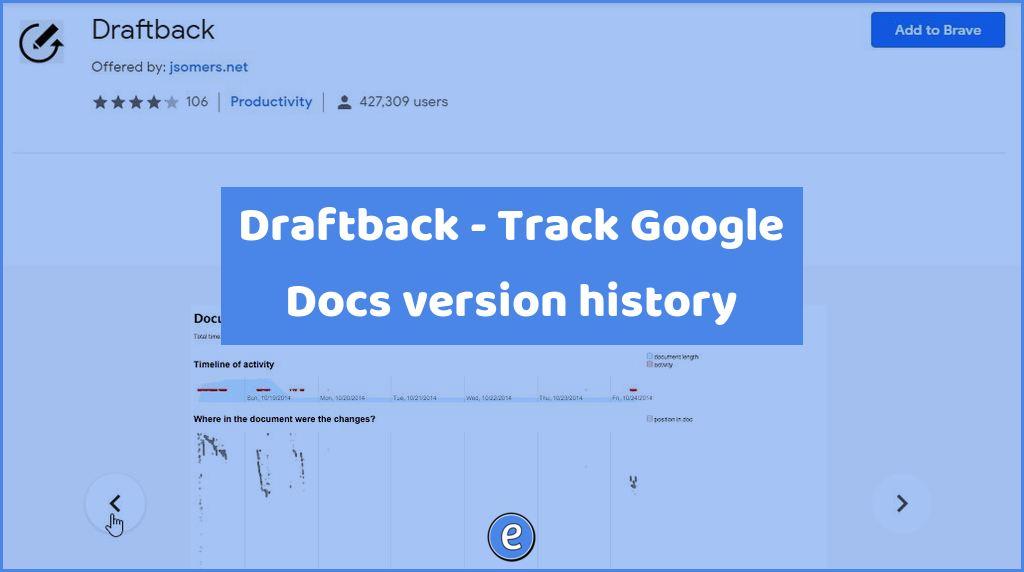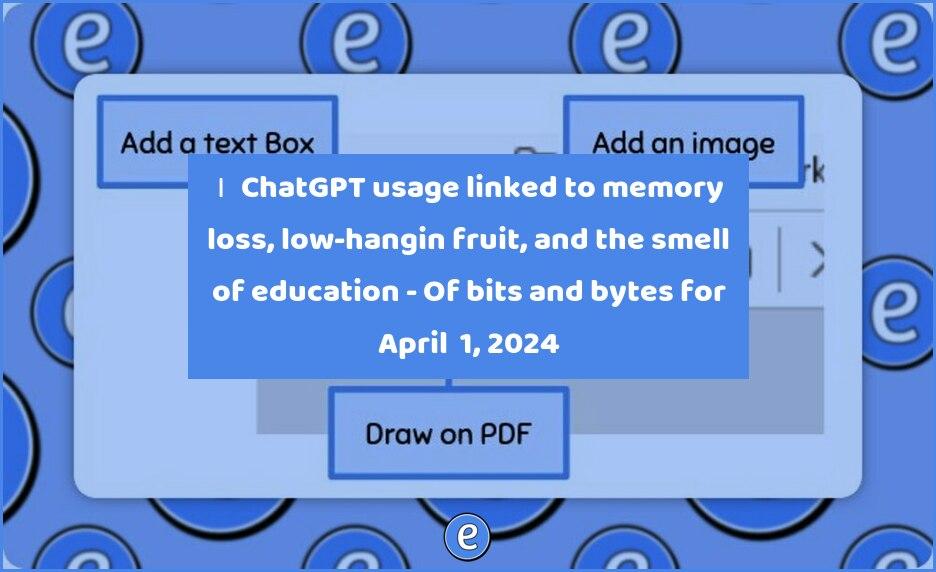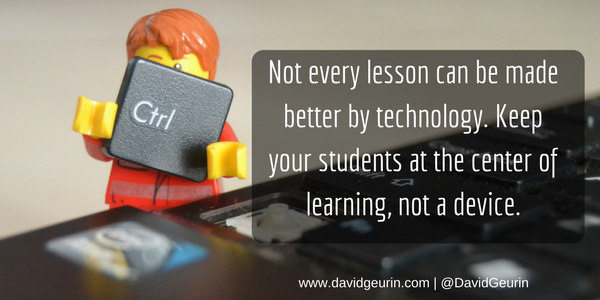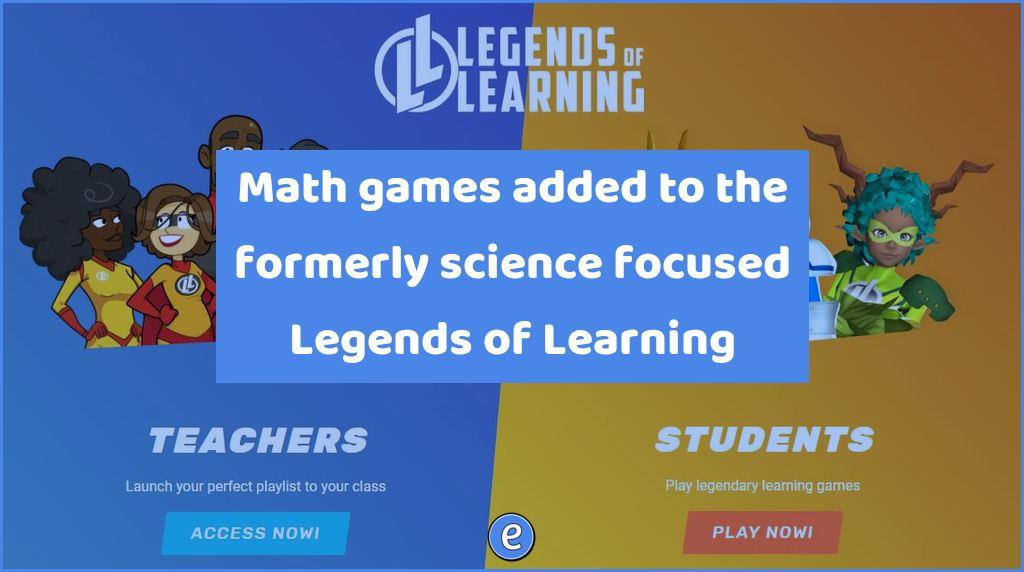🙋♂️ ETLA Conference, NotebookLM, selecting teaching materials, and more – Of bits and bytes for October 28, 2024
Internet Travels
Of bits and bytes is my weekly round up of interesting links and ideas I discovered on the internet. It is published on Mondays for the previous week
ETLA 2024 Conference
I attended and presented at the ETLA conference this past week and am very happy I did. First off, the location was amazing. Not only was everything contained in a nice, walkable, location, but the hospitality staff kept plenty of snacks available throughout the day including Diet Mountain Dew! Kudos to the Nationwide Hotel & Conference Center in Lewis Center Ohio.
Enough gushing about the snacks, lets get to the meat of the conference, the keynotes and presenters. All three keynoters were great, with relatable content and call to actions that I could immediately begin to implement to help educate our students. The sessions I attended were also top notch:
- Prompt Engineering 101 – Dan Stitzel of Streetsboro walked participants through an exercise on creating prompts for AI
- Why your heart matters more than a label – Megan Anderson of Cherry Hill Primary chronicled her journey from not being good enough for her original choice in colleges to being an educator and now an assistant Principal/preschool director.
- Lesson Planning through the Lens of Game Design – Drew Farrell draws parallels between what makes an engaging video game and ways that can be applied to lesson plans.
- Small District, Big Impact – Led by Chantell Manahan, Director of Technology for MSD of Steuben County looked at the advantages and disadvantages of small districts in comparison to large districts.
- Ohio SB29: Impact, Implications, and Resources – Led by Bill Fritz of Learn21, SB29 has some major implications on technology integration.
- AI Toolbox: Best AI Tools for Schools – I always learn from Eric Curts, and this session was no different.
I’m so glad I had the chance to attend and present. If you were there, what was some of your favorite moments?
Learn21 is a proud sponsor of Eduk8me and the Of Bits and Bytes newsletter. Read more about their mission at Learn21.
Apps
Google Keep is adding a new handwriting mode which work differently than the current drawing notes. There are new background choices and improved image tools, plus handwritten notes can be exported as PDFs. There’s is talk of a “Text to sketch” feature that might let you leverage AI to turn text prompts into sketches, but not enough is know at this time.
Google’s NotebookLM, powered by the enhanced Gemini 1.5, is getting a new feature that allows you to customize Audio Overviews. The Audio Overview is a way to summarize your notes into a podcast like audio, and now you can direct the AI hosts on what you want them to focus on, making the audio insights tailored for your specific needs. Google is also working on NotebookLM Business, promising advanced features for businesses and academic institutions, complete with a focus on data privacy and security.
The Chromebook Plus is getting a Studio-style mic feature with ChromeOS 130, using AI isolate your voice and remove any extraneous sounds. Keep in mind, though, this powerful feature is exclusive to the Chromebook Plus models.
Pedagogy
An article by Olivia Burke highlights the surprise when “iPad kids” are introduced to the wonders of paper and pen. The shift has sparked surprise and discussions on the balance between digital and traditional learning methods.
A study in Open, Distance and e-Learning has linked the choice of course materials with teaching styles. It turns out, teachers who opt for Open Educational Resources (OER) over commercially produced materials are more likely to use student-centered teaching practices. These educators tend to embrace teaching approaches that nudge students towards active learning and critical thinking, instead of just working on facts.
More elite college students are having a tough time grappling with whole books, a change educators have noticed over the past decade. While informational texts and excerpts steal the limelight, many students enter college without having read an entire book, leaving them struggling with lengthy, complex texts.
Some college professors are now trimming the reading lists, trading volume for depth, in hopes of reigniting a passion for reading. Yet, questions arise about whether our educational focus has shifted away from valuing deep, immersive reading experiences.
Jose Vilson shares his experience in bridging traditional math methods with newer strategies like repeated subtraction, which initially baffled him but later piqued his curiosity enough to give it a whirl himself. Vilson digs into the disconnect many feel about these modern methods against the backdrop of not-so-united teacher, student, and parent relationships when it comes to math curriculum.
Technology
San Francisco is getting rid of its reliance on 5.25-inch floppy disks used to manage the Muni Metro light rail. I don’t know what’s crazier. The $212 million dollar price tag to move them away from the 5.25 floppy disks, or the fact the the system was installed in 1998 using 5.25 floppy disks. It was in 1998 that Apple released the iMac that did not include a floppy disk drive.
Pop Culture
In a recent survey, nearly 400 teenagers shared that their primary source of news is social media. Many teens are aware of the attention economy and recognize that news is often treated as a product. Fortunately, both teachers and students are embracing strategies like lateral reading to enhance media literacy, especially crucial as we face increased disinformation.
Most teens are finding it challenging to distinguish fact from fiction in the digital age, with a staggering number subscribing to at least one conspiracy theory encountered online. According to a report by the News Literacy Project, 80% of teenagers see conspiracies on social media, while 50% encounter them weekly.
Potpourri
Can a new U.S. initiative addressing lead poisoning help make the world’s children smarter? Lead, a well-known neurotoxin, historically used in paints and gasoline, continues to affect millions of children globally, impairing their brain development.
Tim Cook shared that the standout trait distinguishing Steve Jobs was his remarkable ability to change his mind when presented with new evidence, a skill not many possess. Jobs’ willingness to listen and alter his views if there was a better idea on the table was seen as both brilliant and rare, given how most people cling to their long-held beliefs.
Extra Credit
Here are extra links that I found interesting that may or may not be education related or interesting to you and I didn’t want to lose them.
- Do AI Detectors Work? Students Face False Cheating Accusations – Bloomberg
- Students fight false accusations from AI-detection snake oil
- Mosaic Netscape 0.9 was released 30 years ago today
- News Literacy in America: A survey of teen information attitudes, habits & skills (2024) — News Literacy Project
- The Department of Everything | The Varieties of Travel Experience | Issues | The Hedgehog Review
Thank you!
Major props if you’ve made it this far, you are a rockstar! Feel free to contact me with questions, ideas, concerns, or your thoughts on the next Marvel movie. In fact, I love to discuss about any topic and then wonder how it intersects with education, so fire away!
“Yesterday is history, Tomorrow is a mystery, but Today is a gift. That is why it is called the present.” – Oogway, Kung Fu Panda

By design, the vast majority of Of Bits and Bytes readers never pay anything for the links, commentary, and tips it provides. But you made it all the way to the end of this week’s edition — maybe not for the first time. Want to support more journalism like what you read today? If so, click here.
Be sure to subscribe to my YouTube channel and join your fellow educators on the Eduk8me email list!
